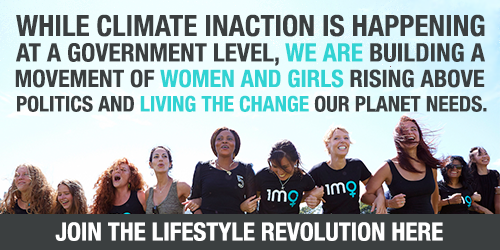The Intergovernmental Panel on Climate Change (IPCC) is a UN body dedicated to conducting climate change science and reporting the political, social and economic impacts of climate change. On 8 October 2018, the IPCC released its 2018 report on global warming. The report discussed the impacts of global temperatures reaching 1.5°C above pre-industrial levels and recommended a number of global actions to respond to the threat of climate change.
Scientists have previously thought that it would be relatively safe to keep the Earth's temperature within 2°C above pre-industrial levels. However, the new IPCC report shows that this estimate was far too optimistic – the extra half a degree between 1.5°C and 2°C is the difference between an extra 420 million people being exposed to record levels of heat, among other climate disasters such as sea level rise and mass extinctions of coral reefs.
Based on the current trajectory, global warming is likely to reach 1.5°C above pre-industrial levels between 2030 and 2052. So in order to stop the Earth from warming beyond this new target, some drastic changes have to be made. And fast.
The report states that by 2050, all of the 42 billion tonnes of annual carbon dioxide emissions need to be eliminated. In other words, coal use for electricity must be reduced to zero.
So what does this mean for Australia, a country whose government signed the Paris Agreement – promising to reduce its carbon emissions – and is supporting the Carmichael Mine – which would produce about one and a half times Australia's annual carbon emissions alone?
In order for Australia to do its part to keep global warming to the 1.5°C target, its coal-generated energy would need to be reduced by 78% by 2030. The Parliamentary Library calculated that in order to do so within 12 years, approximately 12 (out of the country's 21) coal power stations would have to close. This also means that new coal mines such as the Carmichael mega-mine must not be allowed to begin operating.
Read this next: Three Ways You're Indirectly Supporting The Fossil Fuel Industry And How To Stop
While this sounds like a big undertaking for a country whose current Prime Minister infamously brought a lump of coal to Parliament, it is not impossible. Two plants are scheduled to close before 2030. Their operation should not be extended. Another six plants are set to be closed within the next five years. These should be closed early. Adding the next oldest plant plus the two most polluting plants would result in a total of the necessary 12.
The IPCC report is alarming, but it was published at just the right time. The 2019 federal election has the potential to change the country's leadership to those who embrace meaningful action on climate change. At this point, we cannot afford to be apathetic. It is not too late. The future is unwritten. We need to keep protesting and keep having these important conversations. Together, our voices cannot be ignored and they will make a difference. Call and write to your representatives; sign up to be a part of the #StopAdani movement; talk to your parents, siblings, teachers and friends; and continue to fight for our planet.

